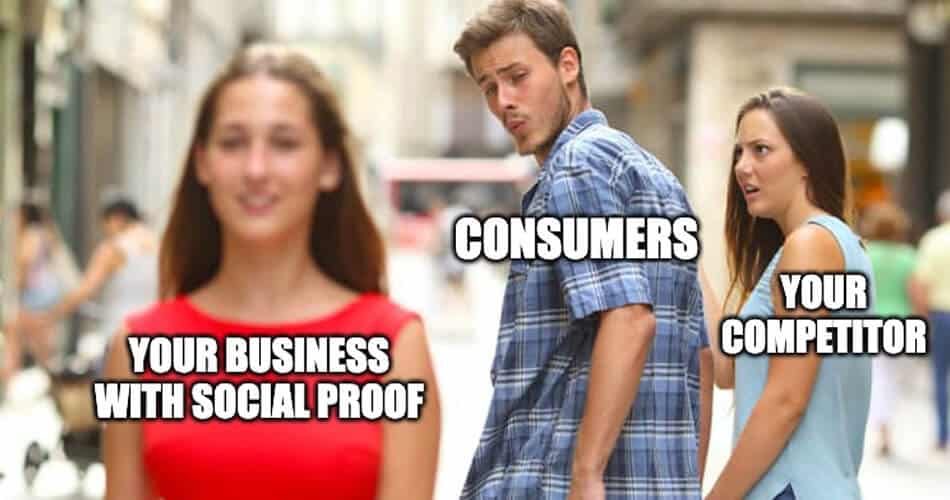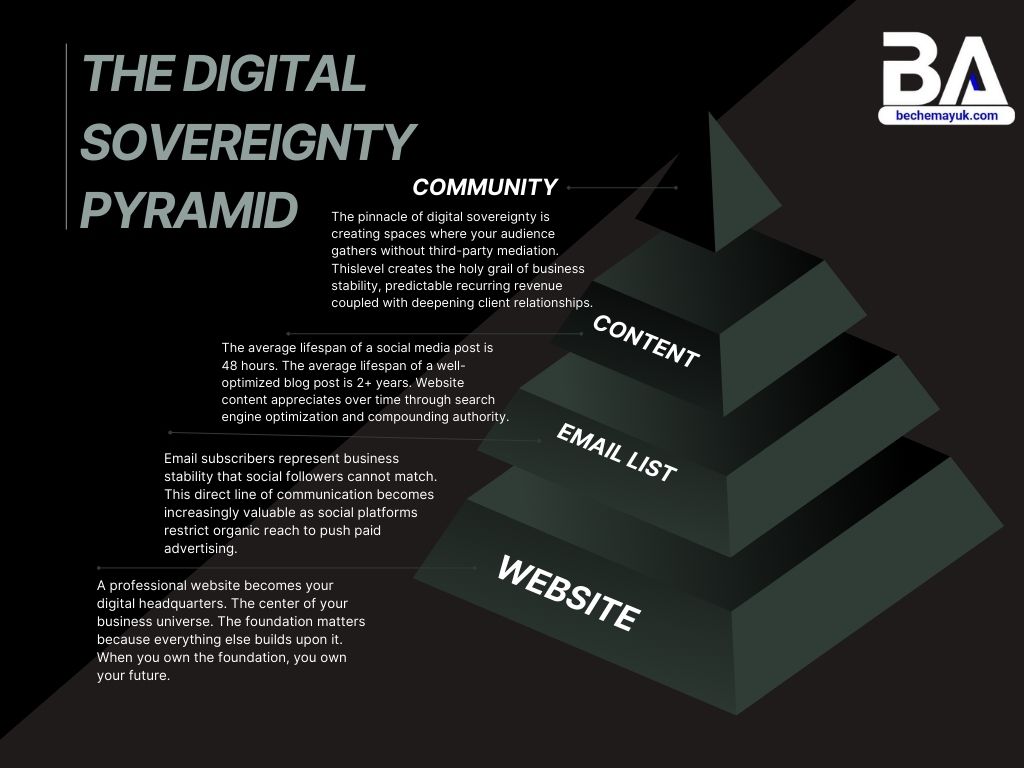Walk into any restaurant and tell me you don’t automatically scan to see how busy it is. If it’s empty, your brain immediately thinks “something’s wrong here”. If it’s packed, “This must be good”.
You didn’t consciously decide to use other people’s presence as a quality indicator. You just did it. We all do.
Same thing happens when you’re scrolling through apps in the app store. You see one with 50,000 reviews and another with 12. Which one feels safer to download? Obviously the popular one.
This is social proof, and it’s probably making more of your daily decisions than you realize.

Social Proof Is Running Your Life (And You Don’t Even Notice)
Here’s what I mean. Yesterday, you probably:
- Picked a checkout line based on how many people were in it
- Felt more confident about a purchase because you saw other people bought it too
- Chose to engage with a social media post partly because it already had lots of likes
- Slowed down on the highway because everyone else was slowing down
None of these were conscious marketing decisions. They were just normal human behaviour.
This stuff is everywhere. Your brain is constantly looking around, checking what other people are doing, and using that information to guide your own choices.
Why Your Brain Does This
Okay, so why does this happen? It’s actually pretty simple.
Imagine you’re walking around 50,000 years ago with your tribe. You’re all looking for food, trying not to become food yourself. Suddenly, everyone around you starts running in the opposite direction.
Do you stop and think “Hmm, let me carefully analyze whether that’s actually a dangerous predator or just something that looks scary but might actually be dinner”?
Hell no. You run first and ask questions later.
The people who stopped to think about it probably got eaten. The people who followed the crowd lived long enough to have kids. Guess which behaviour got passed down to us?
So when your brain sees other people doing something, it thinks “These people probably know something I don’t. Following them is safer than figuring it out myself.”
This happens automatically, before you even start consciously thinking about a decision. Your gut feeling is already influenced by what you’ve seen other people do.
It just makes so much sense… until it doesn’t. The fact that a million people love a vice does not make that vice virtuous. Or maybe it does… who knows? What even is a virtue?
I’m drifting off topic here. Maybe I should create a new newsletter to just talk about these philosophical themes.
The point is, social proof is incredibly powerful. I don’t know why many solopreneurs still leave it out of their website.
When you land on a website and there’s no sign that other humans have ever been there – no reviews, no testimonials, no user count, nothing – what does your brain think?
“Warning. This might be sketchy. Other people are avoiding this for a reason.”
But when you see a website with customer stories, reviews, logos of companies they work with, and testimonials from real people, your brain relaxes. “Okay, other people like me have tried this and it worked out.”
It has been used in marketing for as long as we can remember and has proven to be very effective when done right.
So how exactly do we do it right? How do you use social proof without becoming one of those annoying marketers with fake countdown timers and made-up testimonials?
How to do it right?
1. Use What You Actually Have
Don’t make stuff up. Even if you only have three customers, those three customers can give you powerful testimonials. Even if you’re new, you can talk about the specific results you’ve helped people get.
2. Numbers Only Help If They’re Impressive
If you have good numbers, use them. “10,000+ downloads” or “500+ small businesses trust us” works great.
But be smart about it. “Trusted by 7 customers” might actually hurt you, depending on your business. Only share numbers that make your ideal client think “Wow, that’s a lot of people.”
3. Make Testimonials Sound Human
The best testimonials don’t sound like ads. They sound like your friend telling you about something that helped them.
I talked about it more extensively in this article, explaining the role mirror neurons play in our decision-making.
Bad: “This revolutionary solution increased my productivity by 300% and transformed my entire business ecosystem!”
Good: “I used to spend my entire Sunday doing invoices. Now it takes maybe 20 minutes and I can actually enjoy my weekend.”
Which one sounds like something a real person would say?
4. Show Off Recognition
If you’ve been featured anywhere, mentioned in articles, won any awards, have certifications, show them off. This is “expert social proof”. It shows that people who know what they’re talking about think you’re credible.
Even small stuff counts. Been a guest on a podcast, mentioned in a blog post… that all helps.
5. Video Hits Different
Video testimonials are gold because they’re much harder to fake. When someone looks into a camera and talks about how you helped them, it feels real in a way that text never can.
Plus, people can see actual emotions. That makes it way more believable.
You can use Senja or StoryPrompt to collect, manage, and embed video testimonials directly into your website.
Just make sure you don’t make them play automatically. No one likes autoplay videos on websites.Subscribed
Don’t Be That Guy
Here’s where people usually screw this up:
- Don’t fake testimonials. People can usually tell, and when they figure it out, you’re done.
- Don’t use obvious stock photos for “customer” testimonials. Real customers have real faces.
- Don’t lie about numbers. If someone finds out your “thousands of customers” claim is BS, you’ve lost all credibility.
- Don’t go overboard. A website covered in testimonials and badges looks desperate.
Remember that the best social proof strategy is just being really good at what you do.
Happy customers naturally create testimonials, reviews, referrals, and word-of-mouth. But they won’t do it automatically. You have to ask.
Most satisfied customers are busy living their lives. They’re not thinking about writing you a testimonial. You need to make it easy and remind them to do it.
In a Nutshell
Social proof works because we’re social animals. We use other people’s behaviour as shortcuts for our own decisions.
If you’re actually helping people and getting real results, showing social proof is just good communication. You’re helping potential customers understand that others like them have found value in what you do.
Your website visitors are already looking for signs that other people have successfully used your product or service. The question is: are you giving them what they’re looking for?
Thank you so much for reading. If you liked this, please share so more solopreneurs can see it.
Also, visit my store to get valuable resources on everything you need to know to build your solopreneur website. VISIT MY STORE
Or if you’d rather skip the tech headache,
If you’re rading this on my website, subscribe to my newsletter to receive educational articles like this directly in your inbox every week. SUBSCRIBE NOW





